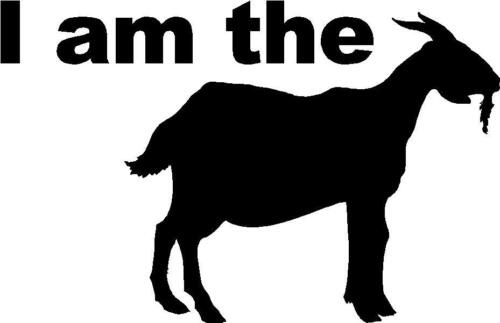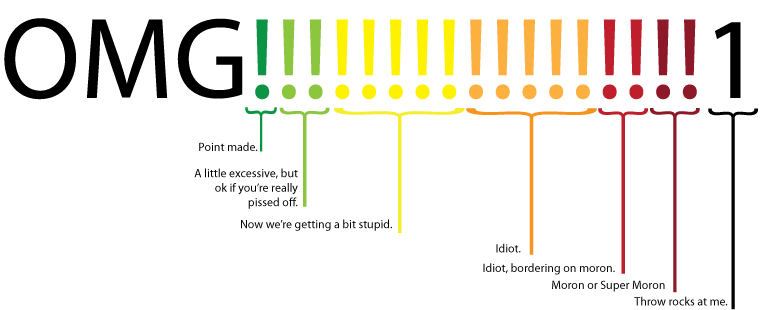In Praise of Discernment - Be Cautious in Labeling Negative Events as Trauma, and Positive Events as the Best!!!!
Pursuing Psychological Strength Instead of Fragility
Nearly 15 years ago, I grabbed a restaurant table next to a famous author with his family in Washington, D.C. I waited until their meal ended before leaning over and detailing my adoration of his work. He graciously asked me to join the crew. I met his partner, traded stories, drew pictures of Komodo dragons and zebras with the kids, and then he suggested a private conversation. He knew of my work and posed a question.
If you want to be really successful, you must be able to describe what makes you exceptional. Take me. I am the best in the world in _______________.1 Todd, what are you the best in the world at?
No sound emitted from my mouth. I knew the answer - nothing. There is absolutely nothing I am the best in the world at. But that didn’t seem to be a satisfactory answer, so I kept thinking. He smiled,
It’s a hard question. Try this Todd: what do you want to be the best in the world in?
Again, I offered nothing notable. I thought of scientists who inspired me to study curiosity and write a book on the topic (Charles Spielberger, Daniel Berlyne). I thought of scientists who inspired my research on social anxiety (Richard Heimberg, Lynn Alden). I thought of scientists who pushed me to join this new idea, positive psychology, in the 1990’s (Martin Seligman, Rick Snyder). I know too many exceptional thinkers and doers to dare consider the status of best in the world. We entered foreign, ill-fitting terrain. In doing so, my dinner companion ended the awkward silence by suggesting I think harder and find an answer. We hugged. Shared appreciation for a surprisingly deep conversation. And parted.
I’ve thought about this framework for success.
Rarely do I waver from the belief that it is the wrong path.
Living in a Hyperbolic World
The Greatest of All Time. The Best. The Worst. Not a week goes by without grandiose proclamations. Consider articles published mere hours after the Super Bowl:
A case is made for this year’s football game being the best ever! Actually, the case has been resolved. It was the best Super Bowl ever! And two brothers experienced the best feeling in the world during the game!
Outside of sports, recommendations were given for the trippiest superhero movie! The coolest film ever made! The best travel tip you need to know! How to can avoid being the worst salesperson ever!
That’s the realm of positive events. A similar sociological shift has occurred for negative events. Harvard psychologist Dr. Richard McNally details the bracket creep for terms such as trauma. The word trauma has a clear definition where ‘the person experienced, witnessed, or was confronted with an event or events that involved actual or threatened death or serious injury, or a threat to the physical integrity of self or others’ (further requiring that ‘others’ must be persons, not animals) and that ‘the person's response involved intense fear, helplessness, or horror.’ Events such as physical or sexual assaults, combat, serious health problems, or losing a child.
But people keep shoving more and more negative events under the umbrella of trauma. Farmers that lose some of their cattle to a disease are experiencing difficulties, but not post-traumatic stress disorder. Neither are people who get their wisdom teeth removed. Discovering that your long-term romantic partner has cancer can be a traumatic event. Hearing someone tell a bad joke about cancer in the workplace? It’s an undesirable experience. A shark biting your child’s toe on a beach trip is a traumatic event. Not so when home, snuggling on the couch watching an actor getting eaten in the mildly terrible movie, The Meg. Bloated descriptions of trauma continue to grow - most recently, people believe children reading about a fictional character described as “enormously fat” in Roald Dahl’s Charlie and the Chocolate Factory is sufficiently traumatizing. In response, the publisher made controversial, posthumous changes to Dahl’s book, referring to the kid as “enormous” but not “enormously fat.”
This bracket creep is similar to concerns raised by Greg Lukianoff and Jonathan Haidt in their book, The Coddling of the American Mind.
When we rely on extreme, crude language to describe the wide variety of positive and negative life events (that differ in intensity, duration, and impairment), our emotional world becomes more difficult to manage. Interpreting everything in life at the extremes creates the conditions for emotional instability.
Seeking Equanimity
Bolded, italicized, exclamations grab attention in the online world. But there is a trade-off to this approach. There is always a trade-off. We must consider the costs and benefits of adopting this communication style.
Recent research suggests that people with broader definitions of what qualifies as a trauma score higher on dimensions of narcissism and a sense of of vulnerability. Other work finds that using the term trauma more broadly leads to greater feelings of distress and nightmares in the aftermath of watching emotionally intense film clips in laboratory experiments. We become weaker, not empowered, when describing our emotional world in crude, simplistic ways.
What wins you attention is often the opposite of what produces resilience.
Aim for specificity in describing what you experience and feel. Whether it is describing negative or positive experiences. Resist tethering your identity to what you experience. Just as there are psychological costs to identifying as a victim with a reduction in resilience, there are psychological costs to identifying as exceptional in terms of a self-worth contingent on other people’s flattery - that cannot be controlled.
Forget trying to be the best. Almost by definition, if you possess sufficient skills and knowledge, you should be exquisitely attuned to the valuable contributions of others. If not, let me raise a different question than my exemplary dinner companion who asked what I am the best in the world in:
How are you best using your education and training to improve the welfare of others?
Strengths and virtues in action suffice for capturing the beauty of humanity. Curious. Courageous. Creative. Hard working. Intelligent. Wise. Providing compassion to someone who is suffering. Telling a captivating story that is persuasive. Thinking hard upon hearing someone express an opposing view. Showing interest in someone sharing something that brings them joy. This is what makes for happy, meaningful, rich moments.
Just as it is absurd to choose a single, best friend among many who satisfy your needs (and theirs), it is equally absurd to spend a lifetime trying to be the best. In the pursuit of excellence, there will often be subtle, slow signs that a difference is made. A single person rethinking the certainty of their position on an issue. A bicep taxed repeatedly, with sufficient time for rest, eventually grows. A few words on a page might inspire someone to take a healthy course of action - that you might never be privy to. Just show up and do the work. Again and again.
As for negative events, be careful of proclaiming difficulties as life altering traumas. Language dictates consciousness. There are traumatic events and negative events and a wide gulf of guaranteed life difficulties in between. You gain agency and empowerment by describing things as they are, no more nor less. People can understand you better and offer proportionate support. You can understand what difficulties you have and have not survived before, remembering neglected mental fortitude.
Reclaim the richness of life by appreciating the various shades of pain and pleasure. You might be surprised by how nuanced self-talk offers greater coping and resilience. Don’t deprive yourself. And if you happen to be in the position of educating or raising young people, please. do not deprive them of growth and learning for your own need to be a savoir.
For evidence-based tools and tactics on mental fortitude, read The Art of Insubordination: How to Dissent and Defy Effectively.
Extra Curiosities
Enjoy a 27-minute interview on Harvard Business Review’s Ideacast where I discuss how the biggest predictor of the success of an idea is the number and diversity of initial ideas that were thought up in the first place, even if they were wrong. “…the goal is not to be right. The goal is to improve the intelligence and the wisdom of the group.”
And If You Missed the Last Issue…
I’ll resist sharing this detail to retain this person’s anonymity.






